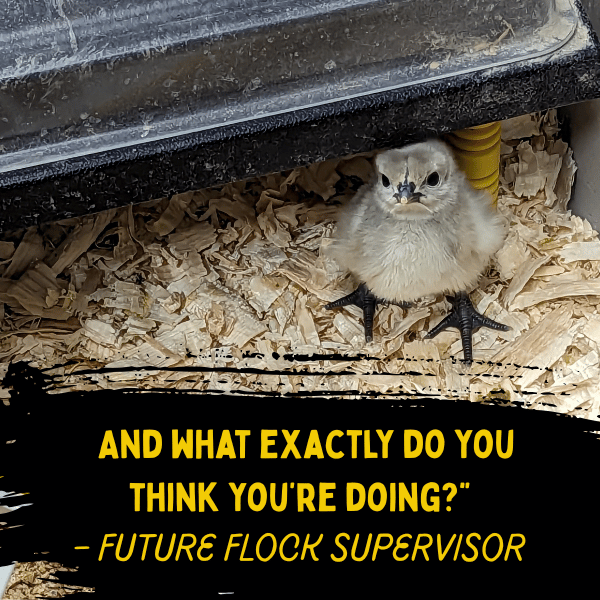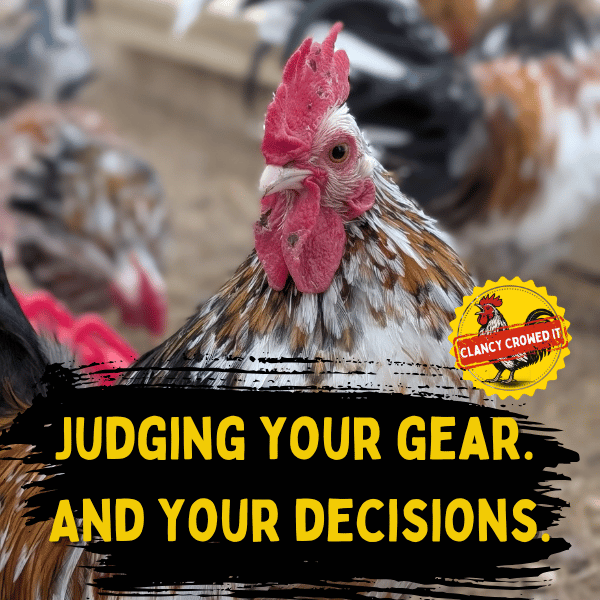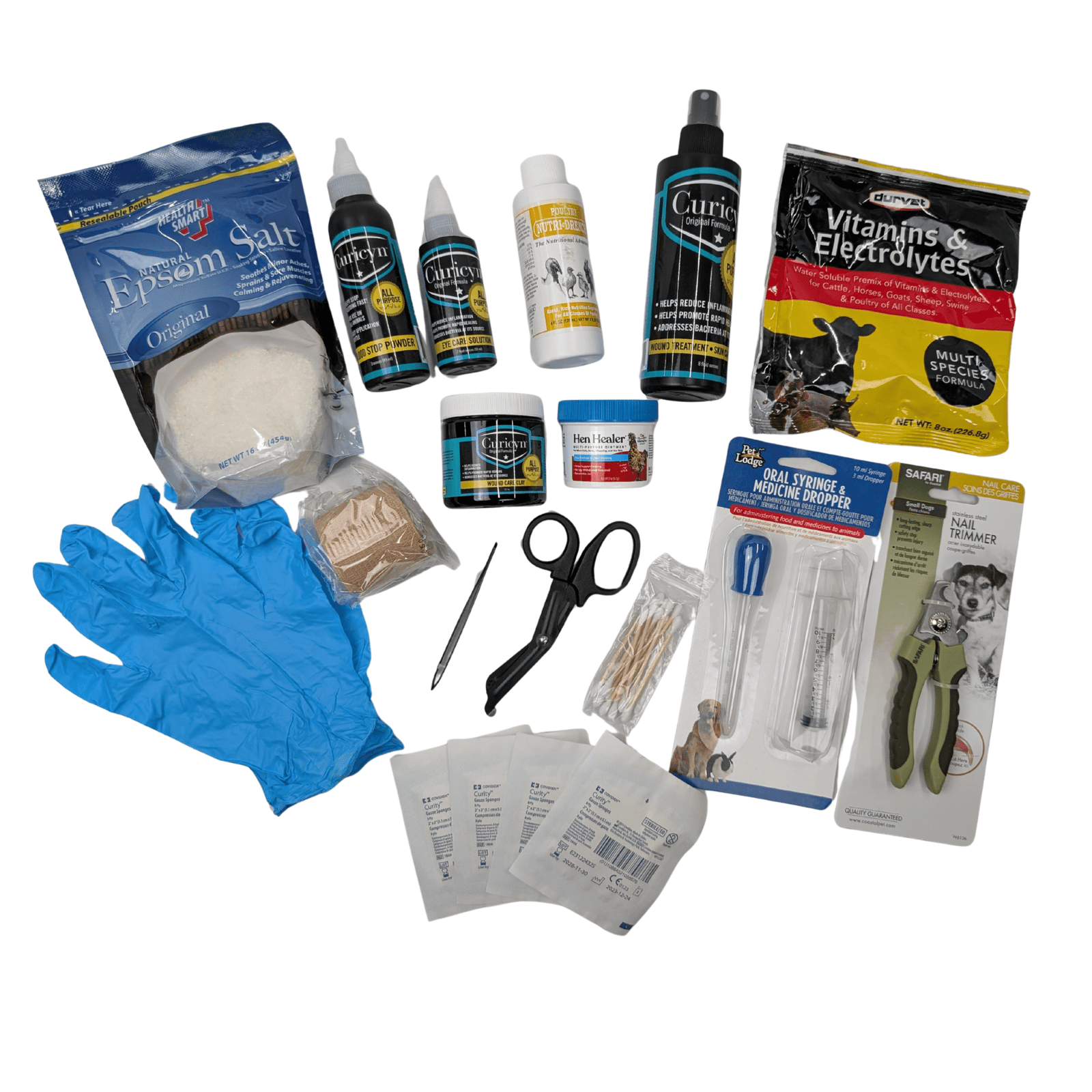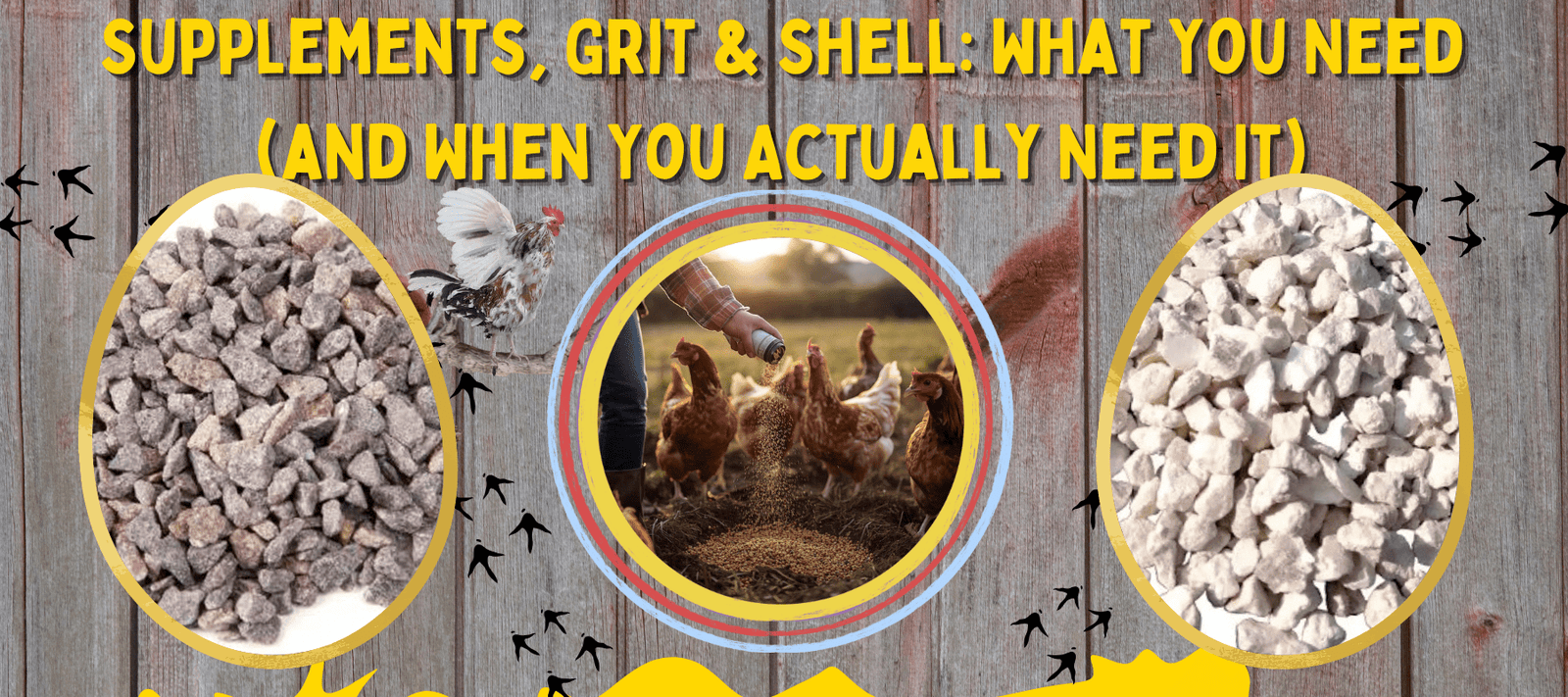Hey there, chicken lovers! Winter is upon us, and while the snowflakes might be beautiful, it's time to turn our attention to the special needs of our senior chickens during these colder months. Just as we layer up and adjust our routines, our feathered friends need some extra TLC too. Let's cluck about how to keep our older chickens thriving in winter!
Understanding Senior Chickens' Winter Needs
As chickens age, they become less efficient at regulating their body temperature, making them more vulnerable in the cold. Their immune systems also weaken, requiring extra care to avoid illness. Here's how you can help:
1. Insulate for Warmth
- Materials Matter: Use materials like foam boards, reflective insulation, or even bubble wrap to line the walls of the coop. Remember, the goal is to retain heat without compromising on ventilation.
- Check the Ceiling and Floor: Don’t forget to insulate the ceiling and possibly the floor, as heat can escape from these areas. However, ensure that the floor remains easy to clean and is not slippery for the chickens.
2. Draft Proofing
- Identifying Drafts: Inspect the coop for drafts, especially around windows, doors, and ventilation openings. Use weather stripping or caulking to seal any unwanted gaps.
- Balancing Ventilation: Ensure that your ventilation system is efficient. Good ventilation is crucial to remove moisture and ammonia but should not create direct drafts on the chickens. Consider adjustable vents that can be regulated according to the weather.
3. Bedding Bonanza
- Layering: Use a deep-litter method by layering organic materials like hemp or wood shavings. This method allows the bottom layers to compost, generating heat and keeping the coop warmer.
- Regular Maintenance: Keep the bedding clean and dry. Wet or soiled bedding can lead to health problems. Regularly turn over the bedding to keep it fresh and encourage composting at the bottom layers.
- Nesting Boxes: Ensure that the nesting boxes have ample, clean bedding. This is especially important for senior chickens, who might spend more time in these areas.
4. Additional Coop Comforts
- Coop Size and Space: Ensure there is enough space for all chickens, but not so large that it becomes difficult to keep warm. Overcrowding can lead to pecking and other stress behaviors, while too much space can make heating inefficient.
- Perches and Accessibility: Lower the perches or provide ramps if necessary. Senior chickens may have trouble jumping to higher perches, and falls can be more dangerous for them.
- Windows for Light: Ensure the coop has windows that can be opened on sunny days for additional warmth and closed securely at night or during extremely cold weather. Natural light is also important for their mental well-being.
By taking these additional steps in preparing the coop, you can provide a comfortable, warm, and safe environment for your senior chickens during the challenging winter months.
Nutritional Needs: Fuel for the Cold
Proper nutrition is crucial for keeping senior chickens healthy, especially during the colder months when their energy requirements increase. Let's cluck in detail about how to meet these nutritional needs:
1. Higher Energy Diet
- Balanced Feed: Look for a feed specifically formulated for senior chickens, which typically has increased levels of protein and essential fats. This helps them maintain body heat and energy levels in the cold.
- Protein Boost: Proteins are essential for feather health and overall strength. Consider feeds that incorporate higher levels of quality protein sources such as fish meal.
- Essential Fats: Healthy fats are a dense energy source. Incorporating flaxseed, black oil sunflower seeds, or other high-fat seeds into their diet can be beneficial.
2. Supplemental Snacks
- Mealworms: These are a great source of protein and are generally loved by chickens. They're perfect for a winter treat but should be given in moderation.
- Corn: Cracked corn is a traditional winter treat that helps generate body heat. However, it should be given sparingly as it is high in carbohydrates and can lead to weight gain.
- Greens and Vegetables: Offering greens like kale, spinach, or collard greens provides essential nutrients. You can also give them winter squash, pumpkins, or carrots for added vitamins and entertainment.
3. Hydration with a Twist
- Warm Water: Providing lukewarm water can encourage drinking, which is crucial in winter as chickens may drink less due to the cold. Adequate hydration aids in digestion and overall health.
- Vitamin and Electrolyte Solutions: Occasionally adding vitamins and electrolytes to their water can help boost their immune system and overall vitality.
4. Avoid Overfeeding
- Monitor Weight: It’s easy to overfeed chickens in winter, leading to obesity, which can be particularly problematic for senior birds. Monitor their weight and adjust feedings as necessary.
- Consistent Feeding Schedule: Maintain a regular feeding schedule to help regulate their metabolism and energy levels.
5. Special Considerations for Molting Birds
- Additional Protein: Chickens going through molt in winter need extra protein to help regrow feathers. Consider adding more protein-rich treats during this period.
By focusing on these nutritional aspects, you can ensure that your senior chickens receive the energy they need to stay warm and healthy throughout the winter.
Water Woes: Preventing a Frozen Supply
Ensuring a consistent and unfrozen water supply for your chickens during the cold winter months is critical. Let's peck into more details about how to keep your chickens hydrated and happy:
1. Heated Water Dishes
- Types of Heaters: There are several types of heated water dishes available, including electric water heaters and solar-powered options. Choose one that best suits the size of your flock and coop setup.
- Safety First: If using an electric heater, ensure all cords and devices are safely secured and protected from pecking or water spillage. Regularly inspect for any wear or damage to prevent electrical hazards.
- Energy Efficiency: Consider energy-efficient models to keep electricity costs down. Some heated dishes are designed to only activate at certain temperatures, conserving energy.
2. Regular Checks
- Consistency is Key: Checking the water supply multiple times a day is essential. Chickens need consistent access to water, and in winter, the risk of freezing is high.
- Cleanliness Matters: In addition to ensuring water isn’t frozen, it’s crucial to keep the water clean. Remove any debris, droppings, or feed that may have fallen into the water dish.
3. Alternate Methods
- Insulated Water Containers: If heated dishes aren’t an option, use insulated containers to slow down the freezing process. Wrapping water containers in insulation material can be an effective temporary solution.
- Change Water Regularly: If insulation isn’t enough, be prepared to change the water several times throughout the day to prevent it from freezing.
4. Positioning of Water Containers
- Sheltered Location: Place water containers in a spot where they are less likely to freeze quickly, such as inside the coop or under a shelter. Avoid areas where the containers are exposed to wind or are in the direct path of snowfall.
- Elevate the Water Dish: Raising the water dish off the ground can prevent it from freezing as quickly and also keeps it cleaner.
5. Monitor Water Temperature
- Not Too Warm: While keeping water from freezing is essential, avoid making it too warm. Chickens prefer cool water, even in winter, so aim to keep the water just above freezing.
6. Accessibility for Senior Chickens
- Easy Access: Ensure that senior chickens, who may have mobility issues, can easily access the water. Avoid placing water dishes in locations that require them to exert too much effort or navigate obstacles.
By implementing these strategies, you can effectively prevent your chickens' water supply from freezing and maintain a clean, accessible source of hydration throughout the winter months.
Mental Well-being: Combatting Winter Blues
Caring for the mental well-being of senior chickens during winter is just as important as their physical health. The cold and shorter days can affect their mood and behavior. Let's explore more ways to keep their spirits high and minds engaged:
1. Stimulation and Comfort
- Varied Enrichment Activities: Introduce a variety of enrichment activities to stimulate their minds. This can include things like food mazes, perches at different heights for exploration, and safe, reflective objects that catch light to pique their curiosity.
- DIY Toys: Create simple, safe toys from household items. For example, a ball of string or a small mirror can provide hours of entertainment.
- Foraging Opportunities: Mimic their natural foraging behavior by scattering treats around the coop or run. This encourages physical activity and keeps them mentally sharp.
2. Comfortable Retreat Spaces
- Personal Space: Ensure there are enough quiet, cozy spaces in the coop for chickens to retreat to when they need alone time. Senior chickens especially appreciate these areas.
- Warmth and Bedding: Provide extra bedding in these areas for warmth and comfort.
3. Social Dynamics
- Observation: Spend time observing the flock's dynamics, especially how the older chickens interact with the rest. Look for signs of bullying or isolation.
- Separate Feeding Stations: Having multiple feeding stations can reduce competition for food and alleviate stress for older chickens.
- Intervention Strategies: If you notice bullying, intervene by separating the aggressor temporarily or rearranging the coop to disrupt established territories.
4. Sunlight and Fresh Air
- Access to Sunlight: Ensure the coop and run allow for ample natural light, which is vital for their mood and overall health.
- Outdoor Time: Weather permitting, allow your chickens outside time for fresh air and sunshine, which can greatly improve their mood and overall well-being.
5. Routine and Consistency
- Predictable Routine: Chickens thrive on routine. Keeping a consistent schedule for feeding, cleaning, and interaction can help reduce stress and anxiety.
- Regular Interaction: Spend time with your chickens daily. Gentle handling and soothing talk can be comforting, especially for more docile or older birds.
6. Adjustments for Impaired Chickens
- Special Care for Impaired Birds: If any of your senior chickens have vision or hearing impairments, make sure their environment is safe and easy for them to navigate. Keeping their surroundings consistent is key.
By focusing on these aspects of mental well-being, you can help ensure that your senior chickens stay engaged, happy, and healthy throughout the winter months. Remember, a mentally stimulated chicken is a content chicken, and these efforts will go a long way in keeping your feathered friends clucking cheerfully all season long!
Winter can be a challenging time for our older chickens, but with a bit of extra care and attention, they can enjoy it just as much as their younger coop-mates. Stay tuned to Just Cluckin' Around for more tips and tales from the coop!












